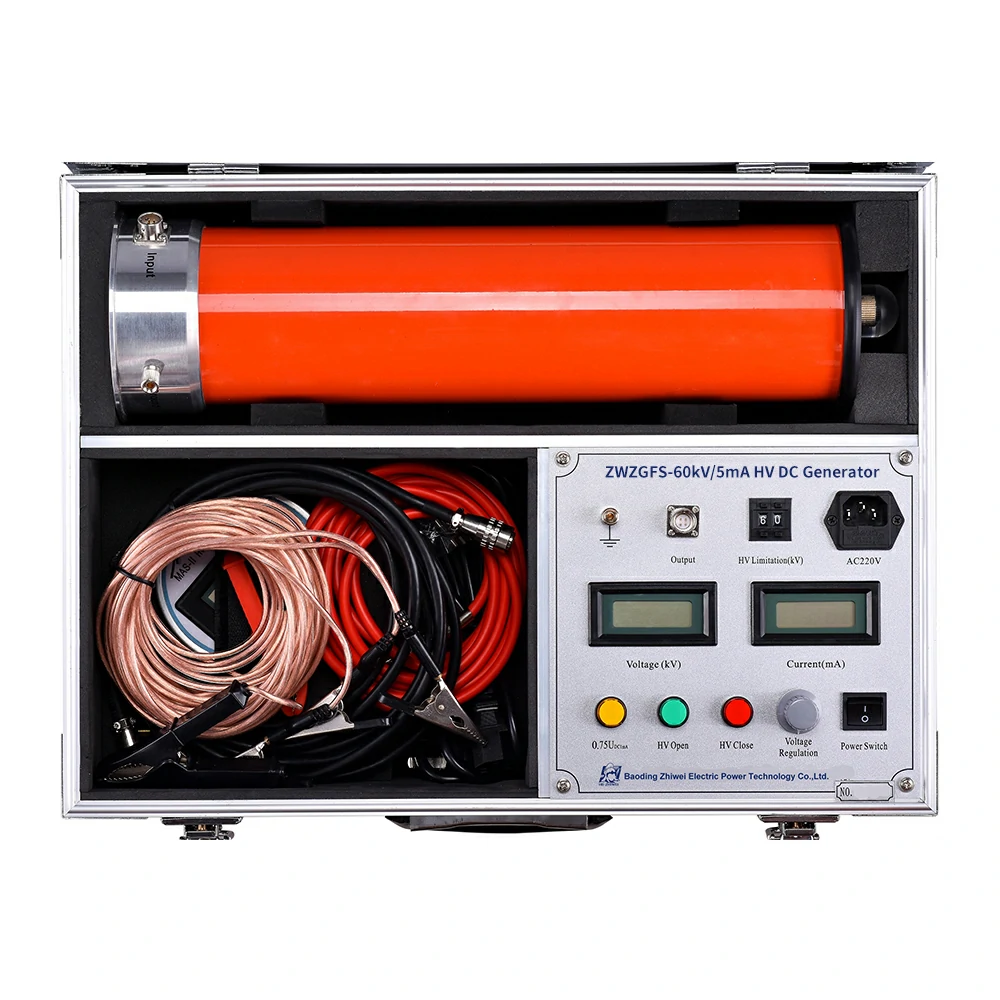Using a high voltage DC (HVDC) tester offers several advantages in various applications, particularly in industries such as electrical power systems, electronics manufacturing, aerospace, automotive, and telecommunications.
Here are some of the main advantages:
- Precision Testing: HVDC testers provide precise and accurate testing of electrical insulation, components, and systems at high voltage levels. This precision is essential for assessing the performance, safety, and reliability of electrical equipment and systems, particularly in critical applications where failures can have significant consequences.
- Wide Range of Applications: HVDC testers are versatile tools suitable for a wide range of testing applications, including insulation resistance testing, dielectric strength testing, breakdown voltage testing, leakage current measurement, and polarity testing. They can be used to test a variety of equipment such as cables, transformers, motors, generators, switchgear, circuit breakers, and electronic components.
- Efficiency: HVDC testers offer high efficiency in terms of energy conversion and testing throughput. They can generate high voltage levels with minimal power consumption, reducing energy costs and environmental impact. Additionally, HVDC testers often feature fast response times and high testing speeds, allowing for efficient testing of large quantities of equipment in a short amount of time.
- Safety: HVDC testers are designed with built-in safety features to protect operators, equipment, and test specimens from electrical hazards. These features may include insulation barriers, protective enclosures, interlocks, and grounding systems to prevent electric shock, arc flash, and other safety risks. HVDC testers also typically incorporate safety standards and compliance measures to ensure safe operation in various environments.
- Portability and Flexibility: Many HVDC testers are compact, lightweight, and portable, making them easy to transport and use in diverse testing scenarios, including field testing and on-site maintenance operations. Some models may offer battery-powered operation or compatibility with mobile power sources, further enhancing flexibility and convenience.
- Remote Monitoring and Control: Advanced HVDC testers may feature remote monitoring and control capabilities, allowing operators to remotely monitor test parameters, view test results, and control testing procedures from a distance. Remote capabilities enhance flexibility, productivity, and safety, particularly in hazardous or inaccessible environments.
- Compliance and Documentation: HVDC testers often come equipped with built-in data logging, analysis, and reporting functionalities, enabling operators to record test results, generate test reports, and maintain comprehensive documentation for compliance, quality assurance, and audit purposes. This documentation helps demonstrate compliance with regulatory standards and industry best practices.
Overall, the main advantages of using HVDC testers include precision testing capabilities, versatility, efficiency, safety, portability, flexibility, remote monitoring and control, and compliance documentation. These advantages make HVDC testers indispensable tools for ensuring the performance, reliability, and safety of electrical equipment and systems in various industries and applications.
